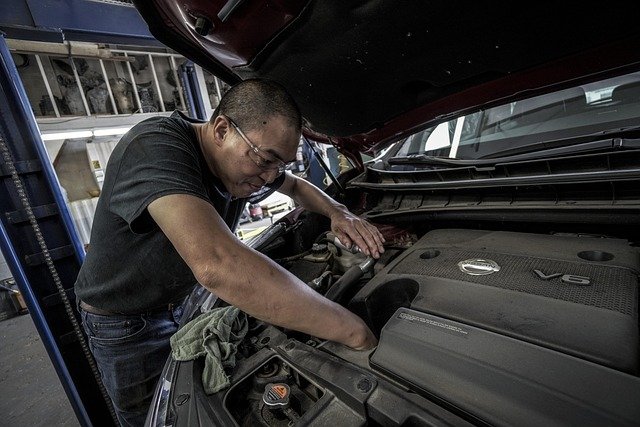Automotive Mechanic Training: Building Skills for a Dynamic Career
Automotive mechanic training is a crucial step for anyone looking to enter the exciting world of vehicle repair and maintenance. This comprehensive education equips aspiring mechanics with the knowledge and skills needed to diagnose, repair, and maintain various types of vehicles. As the automotive industry continues to evolve with advanced technologies, proper training becomes increasingly important for those seeking a successful career in this field.

How long does it take to complete mechanic training?
The duration of automotive mechanic training can vary depending on the program and level of certification desired. Generally, vocational programs or technical schools offer courses that can be completed in 6 to 12 months. More comprehensive associate degree programs typically take about two years to finish. Some mechanics also pursue additional certifications or specialized training throughout their careers to stay current with new technologies and automotive advancements.
What are the benefits of formal car mechanic training?
Formal training in automotive mechanics offers numerous advantages for aspiring professionals. It provides a structured learning environment where students can gain hands-on experience with a variety of vehicles and systems. This exposure helps build confidence and competence in diagnosing and repairing different automotive issues. Additionally, many training programs have partnerships with automotive manufacturers or local businesses, which can lead to internship opportunities or job placements upon graduation.
Are there specialized training options for automotive mechanics?
Yes, there are several specialized training options available for automotive mechanics. Some mechanics choose to focus on specific brands or types of vehicles, such as luxury cars, heavy-duty trucks, or electric vehicles. Others may specialize in particular systems, like transmission repair or automotive electronics. In Yokohama, Japan, for example, there are training programs that focus on the city’s renowned automotive industry, offering specialized courses in areas like hybrid vehicle technology and advanced diagnostic techniques.
What job opportunities are available after completing mechanic training?
Completing automotive mechanic training opens up a variety of career paths in the industry. Graduates can find employment in auto repair shops, dealerships, fleet maintenance facilities, or even start their own businesses. Some mechanics choose to work for specific car manufacturers, while others prefer the diversity of independent repair shops. With experience and additional certifications, mechanics can advance to roles such as shop manager, service advisor, or automotive instructor.
How much can I expect to earn as an automotive mechanic?
The earning potential for automotive mechanics can vary based on factors such as location, experience, and specialization. Entry-level mechanics typically start with lower salaries, but experienced professionals can earn significantly more. Specialized mechanics, particularly those working with high-end vehicles or in niche areas, often command higher wages.
| Experience Level | Average Annual Salary (USD) | Location |
|---|---|---|
| Entry-level | $30,000 - $40,000 | United States |
| Mid-career | $40,000 - $60,000 | United States |
| Experienced | $60,000 - $80,000+ | United States |
| Specialized | $70,000 - $100,000+ | United States |
Prices, rates, or cost estimates mentioned in this article are based on the latest available information but may change over time. Independent research is advised before making financial decisions.
Automotive mechanic training is an investment in a stable and rewarding career. As vehicles become more complex, the demand for skilled mechanics continues to grow. By pursuing comprehensive training and staying updated with the latest automotive technologies, mechanics can build a successful and fulfilling career in this dynamic industry. Whether working in bustling cities like Yokohama or small-town garages, well-trained automotive mechanics play a crucial role in keeping vehicles running smoothly and safely on the roads.






